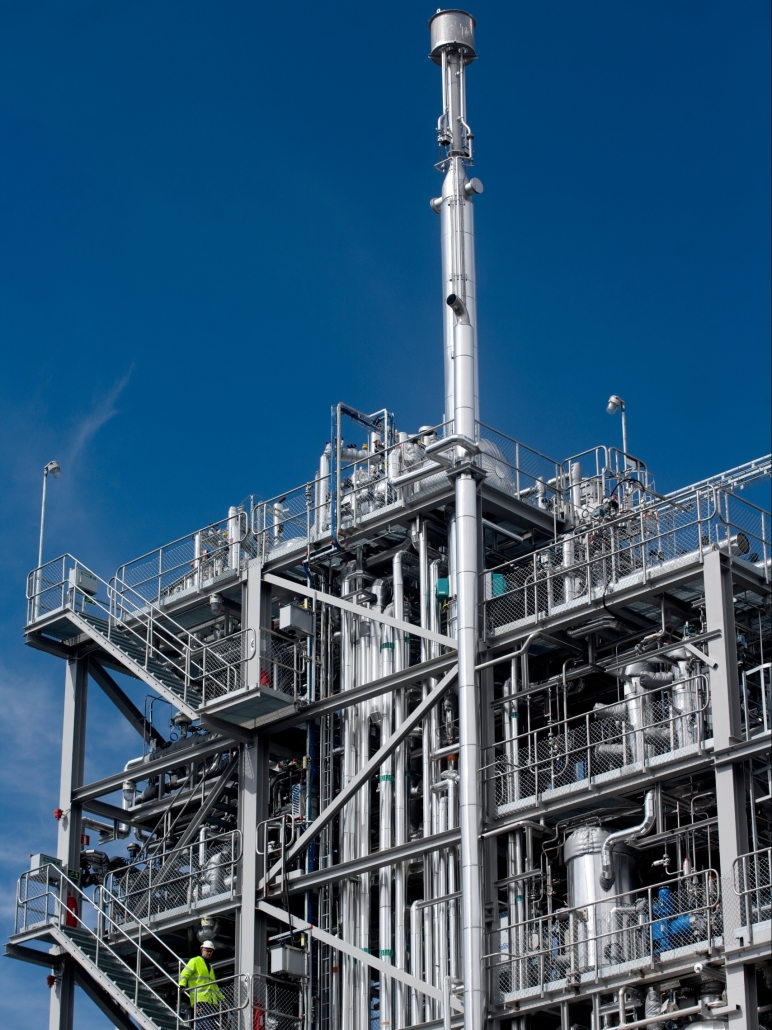WHAT IS A BIOREFINERY?
Biorefineries strive to sustainably process biomass into a spectrum of marketable materials, chemicals and energy carriers. The aim is to use the biomass resource as efficiently as possible and to replace fossil-based products.
For the industry sector as well as the transport sector, managing the transition towards a bioeconomy largely hinges on the development of so-called advanced biorefineries, which are fueled by bio-based residues, waste and by-products from industry, forestry and agriculture. A biorefinery facility integrates different processes and technologies to create new solutions for converting biomass starting materials into renewable products. The biorefinery concept is analogous to petroleum refineries, which produce a spectrum of fuels and products from fossil oil.
In short, biorefineries aim to provide high versatility in biomass utilization and minimize and recycle waste streams. The goal is to produce both low- and high-volume products of high quality, and to thus increase the value of low-grade biomass resources.
From the perspective of industrial transition, the continued development of the biorefinery industry will most likely be done through a process of industry convergence and development of several mature and incumbent industry sectors. This may lead to new industrial opportunities and business models.
A key factor in the deployment of a successful bio-based economy will be the development of biorefinery systems that allow highly efficient and cost-effective processing of lignocellulosic feedstocks into a range of bio-based products, and successful integration into existing infrastructure.






